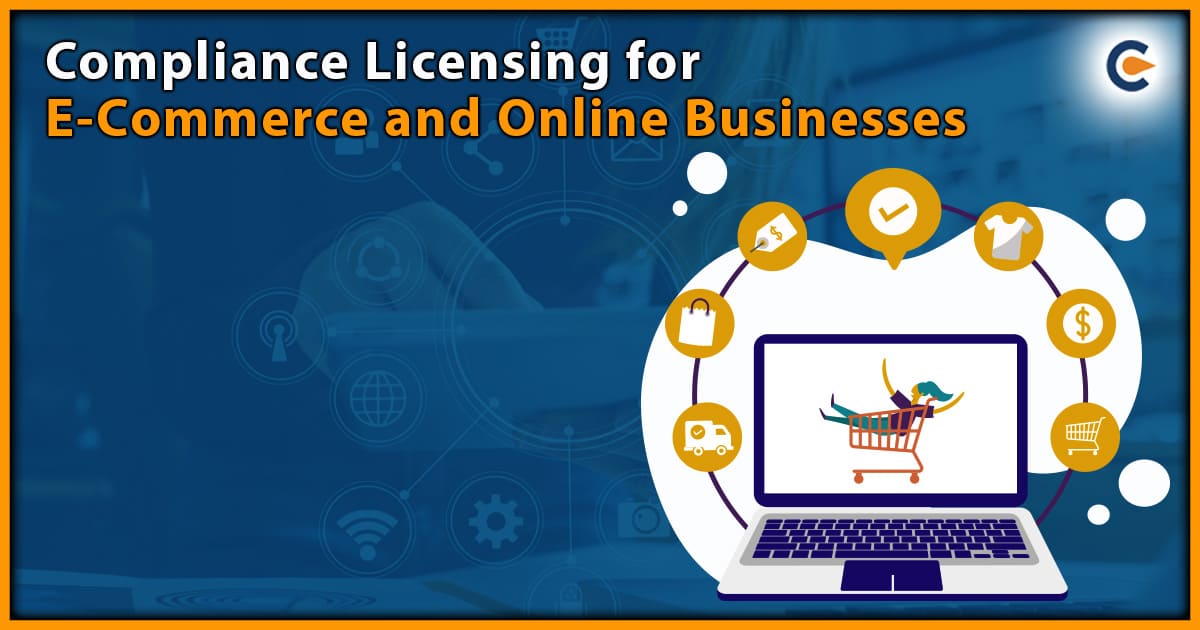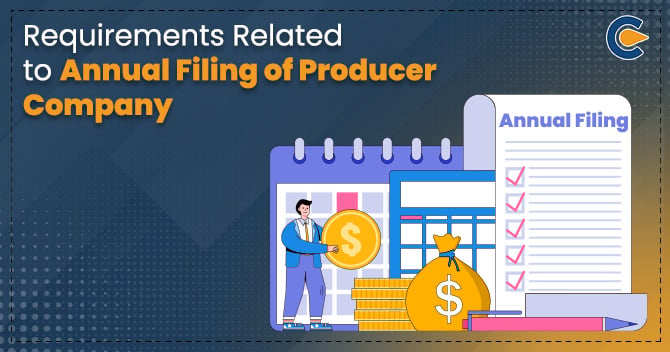Compliance licensing plays a crucial role in the world of e-commerce and online businesses. As these platforms continue to transform the way we buy and sell goods and services, it becomes essential for businesses to understand and adhere to the legal requirements and regulations that govern their operations. Compliance licensing encompasses various licenses, permits, and certifications that online businesses must obtain to ensure they meet industry-specific standards, protect intellectual property rights, and comply with applicable laws and regulations.
Operating an e-commerce or online business without the necessary compliance licenses can have serious legal consequences. The legal landscape surrounding e-commerce is complex and constantly evolving. Failure to comply with licensing requirements can result in fines, penalties, lawsuits, and reputational damage. Compliance licensing ensures businesses operate within the bounds of the law and helps establish trust and credibility with customers. By obtaining the required licenses and permits, businesses demonstrate their commitment to meeting industry standards and complying with applicable regulations, giving customers confidence in their legitimacy and reliability.
Additionally, compliance licensing plays a vital role in protecting intellectual property rights. Online businesses dealing with original content, designs, or patented products must obtain licenses and certifications to safeguard their intellectual property. These licenses ensure that their creations are protected from infringement and that they can take legal action if their intellectual property rights are violated.
Compliance licensing is an ongoing process requiring businesses to stay updated with evolving regulations. Engaging legal counsel or compliance professionals can help businesses navigate the complexities of compliance licensing and ensure they stay in line with the latest requirements.
What is E-commerce?
E-commerce, short for electronic commerce, refers to the buying and selling of goods and services over the Internet or other electronic platforms. An e-commerce business operates primarily online, using websites, mobile apps, or other digital platforms to facilitate transactions between businesses (B2B), businesses and consumers (B2C)[1], or consumers themselves (C2C).
E-commerce businesses enable customers to browse and purchase products or services, make secure online payments, and have the goods delivered to their desired location. They provide a convenient and accessible way for businesses to reach a global audience and for customers to access a wide range of products and services from their homes.
E-commerce businesses typically involve various activities, including online product cataloguing, inventory management, payment processing, logistics, customer support, and marketing. These businesses may operate in various industries, such as retail, fashion, electronics, food, travel, and more.
The success of an e-commerce business often relies on factors such as user-friendly website design, secure payment gateways, efficient order fulfilment, reliable customer service, and effective digital marketing strategies. Additionally, staying compliant with applicable laws and regulations and building trust and credibility with customers are essential for long-term success in the competitive e-commerce landscape.
E-commerce businesses leverage the power of technology and the internet to create a digital marketplace where buying and selling can take place efficiently and conveniently, offering benefits to both businesses and consumers.
Legal Compliances for E-Commerce Business in India
In E-Commerce, merchants strive to meet consumer demands optimally, aiming to save time and provide flexibility for both parties involved. E-Commerce serves as an online platform where business owners and customers engage through websites. In order to initiate an E-Commerce venture, it is necessary to satisfy specific compliance requirements.
- Company Incorporation or LLP: Prior to embarking on an e-commerce business, it is advisable to establish a company or LLP (Limited Liability Partnership). Doing so facilitates smooth business operations and ensures transparent record-keeping. In the case of partnerships and proprietorships, obtaining limited liability protection during legal disputes can be challenging. Therefore, incorporating a company or LLP provides a safer approach for seamless functioning and enhanced protection.
- Payment Gateway and Opening of Bank Account: In order to facilitate customer payments on an e-commerce website, the presence of a payment gateway is essential. This gateway serves as a conduit for accepting debit cards, credit cards, and net banking payments from various banks and credit card issuers. For every e-commerce business, having a payment gateway is a prerequisite for accepting online payments. Through the payment gateway, funds received from customers are transferred to the business’s bank account.
In the case of a company or LLP, it is convenient to open a bank account under the name of the company or LLP at any banking institution. This bank account is required to receive payments from the payment gateway. On the other hand, for partnership or proprietorship businesses, it is imperative to obtain GST (Goods and Services Tax) registration prior to opening a bank account. - GST Registration: To commence an e-commerce business, obtaining GST (Goods and Services Tax) registration is obligatory. This registration is compulsory for businesses that have an annual turnover exceeding Rs. 40 lakh and engage in interstate outward supplies of goods, regardless of their turnover. The GST registration process can be completed through the online GST portal by submitting the necessary documents and the prescribed form.
- Documentation: In order to safeguard the interests of the business, every business owner must engage in legal documentation for future purposes. Marketplaces typically provide agreements and legal documents that both sellers and customers are required to adhere to. Before signing these documents, it is essential for all parties involved to carefully review and understand the terms and conditions outlined in them.
- Seller’s Permits and Sales Tax Licenses: For businesses selling products or services, obtaining seller’s permits and sales tax licenses is essential for navigating tax obligations. Seller’s permits allow businesses to collect and remit sales tax to the relevant tax authorities. Sales tax licenses are typically required for businesses that engage in taxable transactions, ensuring compliance with tax laws and regulations. These licenses enable businesses to accurately calculate and report sales tax and fulfil their tax obligations.
- Professional Licenses and Certifications: Specific e-commerce and online businesses require professional licenses and certifications to demonstrate their expertise in specialized fields. Lawyers, accountants, medical practitioners, and architects must obtain relevant licenses and certifications to practice legally. These licenses and certifications ensure that businesses and professionals adhere to industry standards, ethics, and regulations, providing credibility and trust to clients and customers.
- Intellectual Property Rights: Intellectual property rights are crucial for businesses creating and distributing original work, such as content, inventions, designs, or brand trademarks. Obtaining licenses and registrations for intellectual property, such as copyrights, patents, and trademarks, helps protect these assets from unauthorized use or infringement. These licenses establish legal ownership and allow businesses to enforce their rights and take legal action against infringements, safeguarding their original work and brand identity.
Industry-Specific Compliance Considerations
Industry-specific compliance considerations vary depending on the sector.
Some key compliance considerations for each of the industries you mentioned:
Food and Beverage
- Safety Regulations: Compliance with food safety regulations, such as those related to handling, storage, preparation, and labelling of food products.
- Health Permits: Obtaining and maintaining health permits and certifications to ensure compliance with local health department regulations.
- Allergen Labeling: Compliance with regulations regarding identifying and labelling allergens in food products.
- Hazard Analysis and Critical Control Points (HACCP): Implementing and maintaining HACCP plans to identify and control food safety hazards.
Health and Beauty
- Licensing Requirements: Compliance with licensing and registration requirements for cosmetics and personal care products, including manufacturing, labelling, and ingredient restrictions.
- Product Testing: Conducting safety and efficacy testing of products to ensure compliance with relevant regulations.
- Labelling and Claims: Ensuring accurate and truthful labelling and advertising of products, including claims related to health benefits or therapeutic effects.
- Good Manufacturing Practices (GMP): Implementing and adhering to GMP standards for manufacturing and quality control processes.
Financial Services
- Regulatory Compliance: Compliance with regulations imposed by financial regulatory bodies, such as anti-money laundering (AML) laws, consumer protection regulations, and data privacy laws.
- Know Your Customer (KYC): Implementing robust KYC procedures to verify the identity of customers and prevent fraud or illicit activities.
- Reporting and Record-Keeping: Maintaining accurate records and submitting regular reports to regulatory authorities as required.
- Cybersecurity: Implementing strong cybersecurity measures to protect sensitive customer data and prevent unauthorized access or breaches.
Online Gaming and Gambling
- Licensing and Regulation: Obtaining and maintaining the licenses and permits for operating online gaming and gambling platforms in the target jurisdictions.
- Responsible Gaming: Implementing measures to promote responsible gaming, such as age verification, self-exclusion options, and limits on betting amounts.
- Anti-Money Laundering (AML): Implementing AML policies and procedures to prevent money laundering and comply with relevant regulations.
- Player Data Protection: Ensuring the security and privacy of player data, including compliance with data protection laws and regulations.
Obtaining and Renewing Compliance Licenses
Maintaining compliance also involves keeping accurate records and documentation of the licenses and permits obtained. This includes retaining copies of license certificates, renewal notices, and any correspondence with licensing authorities. These records serve as proof of compliance and can be requested during audits or inspections.
Regularly reviewing and evaluating compliance requirements is essential to ensure ongoing adherence to licensing obligations. This may involve conducting periodic assessments, consulting legal counsel or compliance professionals, and staying updated with relevant laws and regulations changes.
By diligently researching, correctly applying for, and maintaining compliance licenses, e-commerce and online businesses can operate within the legal framework, build customer trust, and mitigate non-compliance risks.
Researching Applicable Licenses and Permits:
Before applying for compliance licenses, it is crucial to conduct thorough research to identify the specific licenses and permits required for the e-commerce or online business. Different industries and jurisdictions have varying licensing requirements. By understanding the applicable licenses, businesses can ensure they meet all necessary compliance obligations and operate legally.
Application Process: Steps to Acquiring Compliance Licenses
Once the required licenses and permits have been identified, businesses must follow the application process to acquire them. This typically involves submitting an application form and supporting documents, such as identification, business registration certificates, financial statements, and other required information. It is important to carefully fill out the application form, ensuring accuracy and completeness. Some licenses may also require background checks, inspections, or interviews as part of the application process.
Maintaining Compliance: Ensuring Renewal and Timely Updates
Obtaining compliance licenses is a process that takes time; businesses must ensure timely renewal and stay updated with any changes or modifications to the licensing requirements. It is essential to keep track of license expiration dates and submit renewal applications well in advance to avoid disruptions in business operations. Additionally, businesses should stay informed about any updates or amendments to the licensing regulations and promptly make the necessary changes or updates to maintain compliance.
Compliance Challenges and Best Practices
Navigating the complex compliance landscape can pose various challenges for e-commerce and online businesses. However, adopting best practices can help mitigate these challenges and ensure adherence to applicable regulations.
Some Key Aspects to Consider:
- Staying Up-to-Date with Changing Regulations
One of the significant challenges is keeping up with evolving regulations and compliance requirements. Laws and regulations related to e-commerce can change frequently, making it essential for businesses to stay informed and updated. Regularly monitoring industry news, engaging with regulatory bodies, and subscribing to relevant newsletters or publications can help businesses stay abreast of regulatory changes and adjust their compliance strategies accordingly.
- Dealing with Multi-Jurisdictional Compliance
E-commerce businesses often operate across multiple jurisdictions, each with its compliance requirements. Managing compliance across different regions can be complex and time-consuming. Businesses should thoroughly research and understand the specific compliance obligations in each jurisdiction. This may involve seeking legal counsel to ensure local laws and regulations compliance.
- Implementing Compliance Strategies: Record-Keeping and Documentation
Maintaining comprehensive records and documentation is crucial for demonstrating compliance. Businesses should establish robust record-keeping systems that accurately capture and store relevant compliance-related information. This includes licenses, permits, tax records, financial statements, and any other documents required by regulatory authorities. Regular audits and internal reviews can help identify any compliance gaps and enable businesses to take corrective actions promptly.
- Engaging Legal Counsel: Navigating Complex Compliance Requirements
Given the complexity of compliance requirements, businesses may benefit from engaging legal counsel or compliance professionals with expertise in e-commerce regulations. These professionals can provide guidance on specific compliance obligations, assist with license applications, conduct compliance audits, and offer advice on maintaining compliance in an ever-changing regulatory environment.
- Consequences of Non-Compliance
Non-compliance can have severe consequences for e-commerce businesses, including financial penalties, legal disputes, reputational damage, and even business closure. Businesses must understand the potential ramifications of non-compliance and prioritize compliance efforts to mitigate these risks. Taking proactive measures to stay compliant helps protect the business, gain trust from customers, and maintain a positive reputation in the marketplace.
By being proactive and implementing best practices, e-commerce and online businesses can navigate compliance challenges effectively, reduce risks, and establish a solid foundation for long-term success.
Conclusion
Compliance licensing is crucial for e-commerce and online businesses, ensuring legal operation, intellectual property protection, and customer trust. Non-compliance leads to legal consequences and reputational damage. To address compliance challenges, businesses must stay updated with regulations, research multi-jurisdictional obligations, and implement robust record-keeping. Engaging legal counsel aids in navigating complex requirements. Understanding the consequences of non-compliance and prioritizing compliance efforts are vital. Diligent research, proper application, and timely renewal of licenses maintain compliance. Best practices mitigate risks and establish a strong foundation for long-term success. Compliance requires staying informed, proactive, and adaptable. Prioritizing compliance ensures legality, intellectual property protection, and customer trust, securing a solid position in the e-commerce market.
Read Our Article: Obtaining FSSAI License For E-Commerce Business In India











